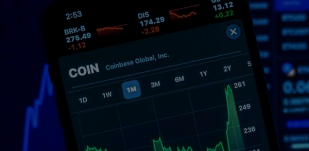How to Send Money Abroad for Free - Is it Really Possible?
Whatever international payment requirement you need to satisfy - personal or business - you'll quickly become aware of the associated costs.
Foreign exchange providers charge fees, which typically come in one of two forms:
- A fee per transaction, which is either a flat fee or a percentage of the transaction.
- A mark-up on exchange rates.
With so many different payment methods at your disposal, the varying costs can leave you confused. To help you transfer your funds with confidence, let's explore the payments landscape.
Ways to Send Money Abroad
Before you start exchanging currencies and executing payments, take the time to understand the different types of international payment methods - so you can take control of your finances.
Wire transfer
This is an electronic transfer of funds from one person or institution to another via a global network that is administered by banks and transfer service agencies.
Introduced in the early 1970s, SWIFT (Society for Worldwide Interbank Financial Telecommunications) has evolved into the most recognised facilitator of inter-currency wire transfers. Other secure systems that facilitate wire payment instructions include Fedwire and CHAPS.
Most countries are connected to the SWIFT network, allowing local banks and institutions to process SWIFT transfers.
SWIFT is widely considered to be one of the most convenient and secure ways to transfer money across borders – but not the cheapest due to the high fees it often carries. The fee charged to wire money varies based on where you're sending it to, and what bank you use to do so.

Credit and debit cards
The ubiquity of credit and debit cards means they are widely accepted across the world with the exception of just a few countries. You can make international payments online using a credit or debit card, although it’s not the most commonly used method for several reasons:
- You will typically pay a higher interest rate as a “cash advance”.
- You will pay more in fees.
- You probably won’t receive a competitive exchange rate.
Despite this, there are some situations where using a credit card to send money overseas makes sense, including:
- If you’re benefitting from a rewards programme, such as cashback or frequent flyer miles.
- You need to make an international payment in an emergency and don’t have a more cost-effective transfer method available at short notice.
Direct Debit
An international Direct Debit is an authorised payment instruction to your bank to execute a single debit from your account to the recipient’s account in another country. You are authorising the recipient to collect the funds directly from your account, rather than sending them yourself.
For example, if you need to make a payment in the Single Euro Payments Area (SEPA) - which includes the 27 EU member states, the four-member states of the European Free Trade Association (EFTA), and the UK - a SEPA Direct Debit is a convenient solution when receiving and making regular overseas payments. You can set up Direct Debit payments in euros throughout the SEPA community.
Online platform
If you choose to use a currency specialist over your bank, you will gain access to an online payments platform - an international payments gateway that allows you to manage all your requirements conveniently from anywhere, at any time. From purchasing currency to making payment instructions and tracking them, it provides a clear view of your money online.
You can also use the platform to manage your list of recipients, view your transaction history and create a currency exchange rate alert to receive a text or email notification if a rate reaches your desired level. Moreover, there are often no transfer fees when sending money online.
Over the phone
If you choose to use a currency specialist, you can also speak to a dedicated account manager over the phone, who will help you execute your international payment. Before making the payment on your behalf, they will also help you secure the best possible exchange rate and answer any questions you have.
How Much Can You Send?
There is currently no legal limit on how much money you can transfer overseas from the UK. However, payment providers may impose limits on wire, bank, or online transfers - for example, if transferring online the minimum amount you can send is typically £50 and the maximum is £100,000. Nor is there a limit on how much money you can receive from overseas, although you may have to declare it for tax purposes in the UK.

Is Your Money Safe?
You are the first layer of security when making international payments. So, make sure you shield your money from cybercriminals and unscrupulous payment providers by being vigilant.
- Only send funds through a reputable company: Choose a money transfer provider that’s regulated and authorised by the Financial Conduct Authority (FCA).
- Check the provider’s customer service record: The foreign exchange market can be daunting and confusing to navigate alone. Therefore, it’s reassuring to use a provider - like a currency specialist - that assigns you a dedicated account manager. Having an expert on your side to guide you through the whole process will give you peace of mind.
- Research the company’s track record: Read customer reviews about different providers before choosing one. Reputable review websites like Feefo and Trustpilot are a good place to start.
- Assess their transparency. Reliable providers will be transparent in their dealings with you - from clarity about their transaction fees to providing live updates on your transactions, so you can be sure your money is going where it’s intended.
- Be wary of scams. Avoid falling prey to scammers who ask you to send money under false pretext by understanding common cyberattack techniques like phishing.
- Verify the recipient’s details. Whether you’re sending money to a business or an individual, always take extra care to confirm the recipient’s details to avoid your money being sent to the wrong person.
- Safeguarding your information. Use strong passwords and update them often. Also, install security software to keep prying eyes away from your online money transfers, and stay alert to any unusual bank transactions.
Choosing an Affordable International Transfer Method
Clear Currency can help you process your international payments cost-effectively without compromising their speed and security.
We are one of the leading specialist currency providers in the UK, offering:
- A free online account, with a safe and secure payments platform
- Fee-free currency transfers
- Free currency alerts and updates
- Free currency guidance with specialists, on the website or over the phone
- A bank-beating and transparent exchange rate mark-up
- Fast and easy payments in over 35 currencies
- Regulated by the Financial Conduct Authority
Sign up to an account today: international payments with competitive rates, coupled with a friendly, personal service.
Related Articles
How to Mitigate Foreign Exchange Risk
Currency risk can have a significant effect on the efficiency and profitability of any international business. Each exchange rate movement affects how much you receive from sales and what you pay to suppliers.
Read more
Moving to Dubai from the UK: Checklist
You’re ready for a new life overseas and have decided you’re moving to Dubai. Now it’s time to consider the various costs involved, from your visa and accommodation, to health insurance, shipping your belongings and bringing your beloved pets along too.
Read more
Currency Outlook Quarter 1 2023
Clear Currency looks back at the performance of the US dollar, euro and sterling in Q4 2022, and assesses what might be in store for Q1 2023.
Read more


